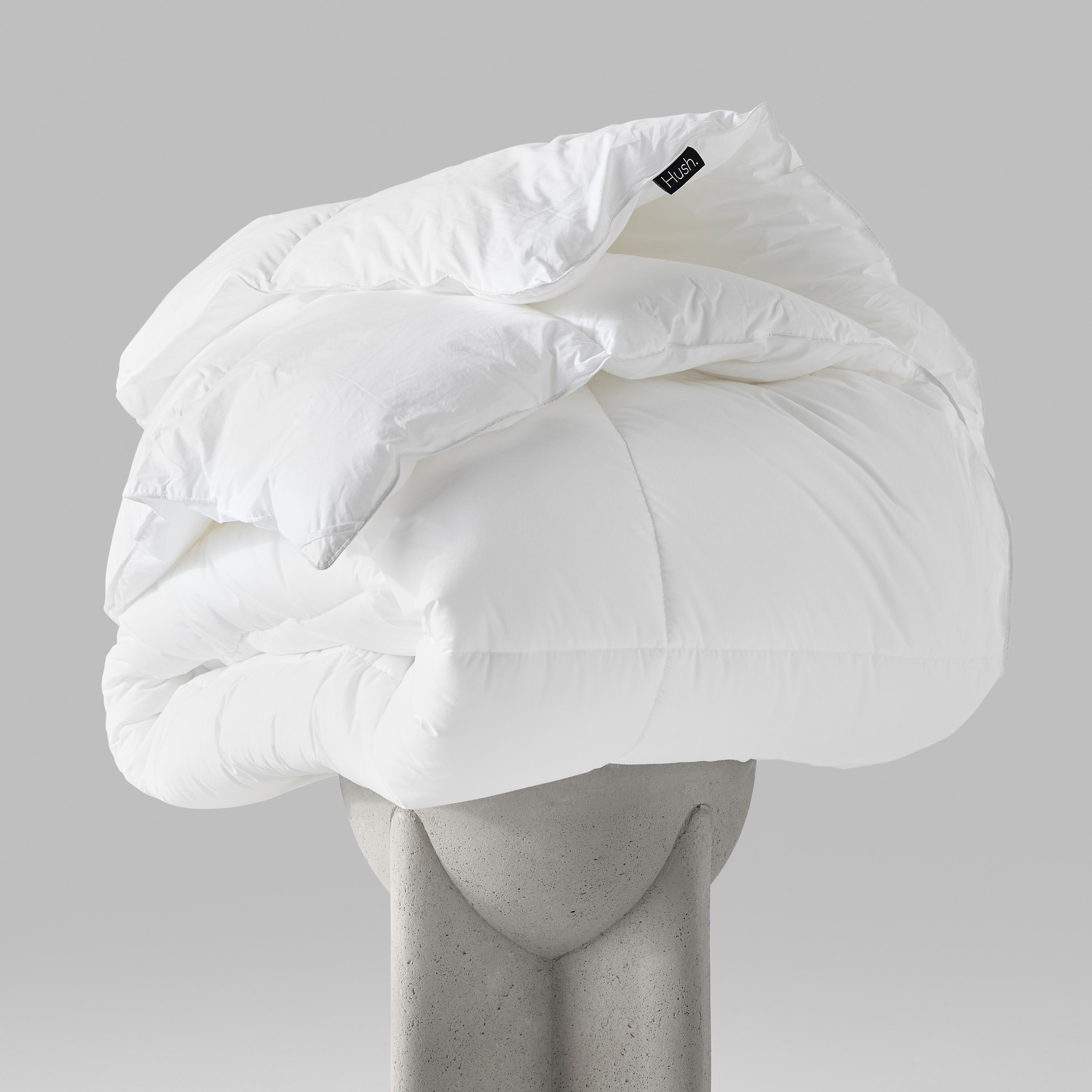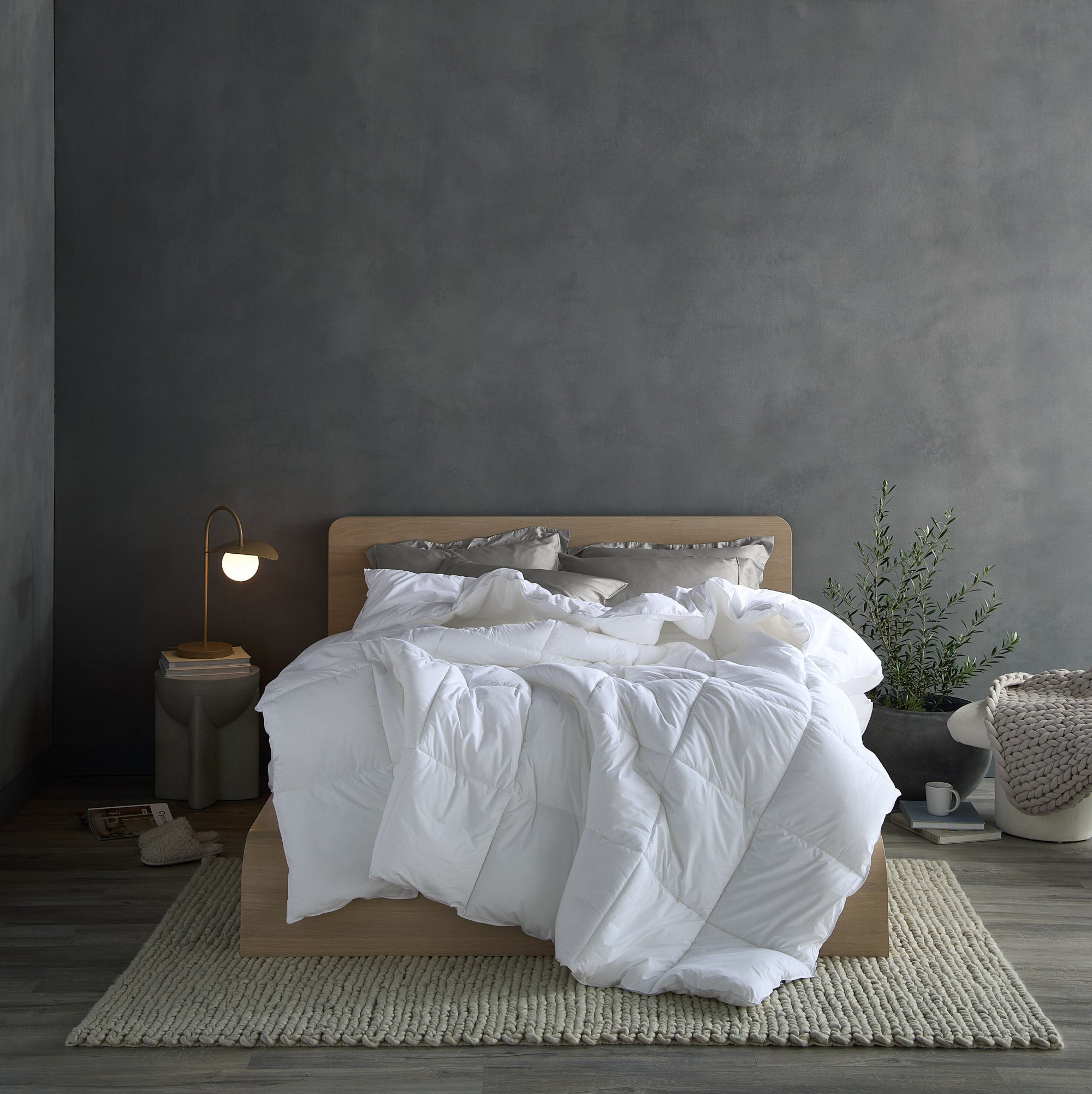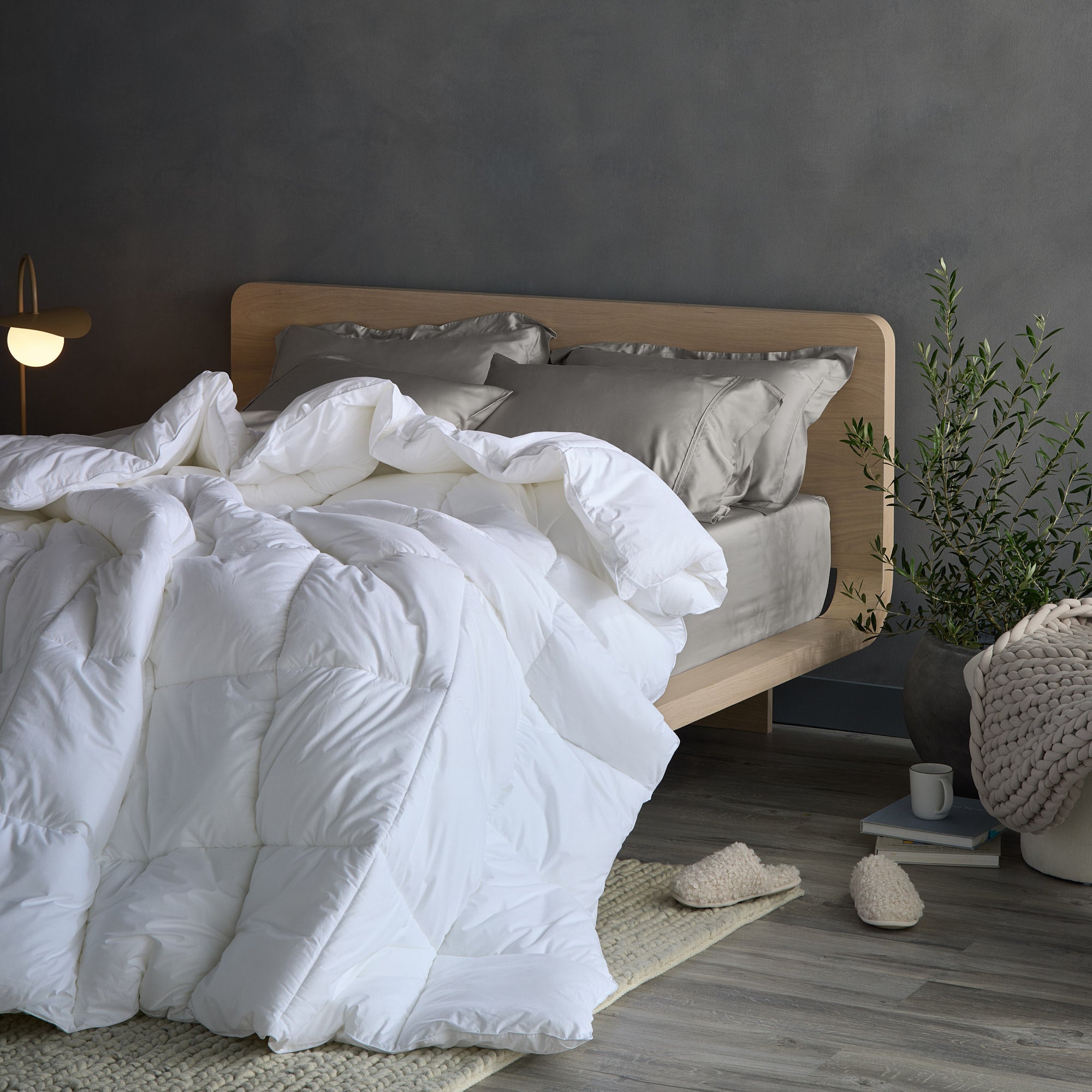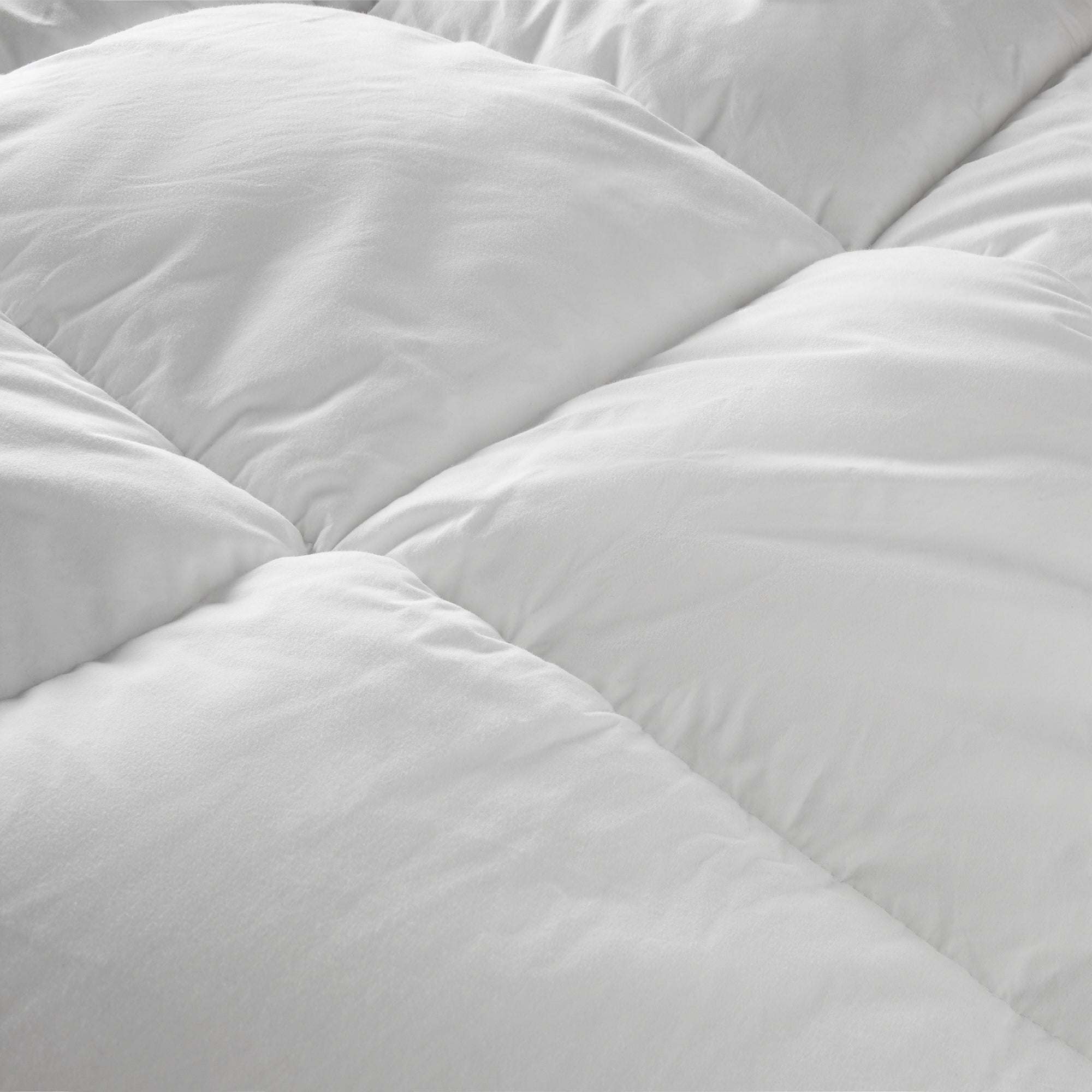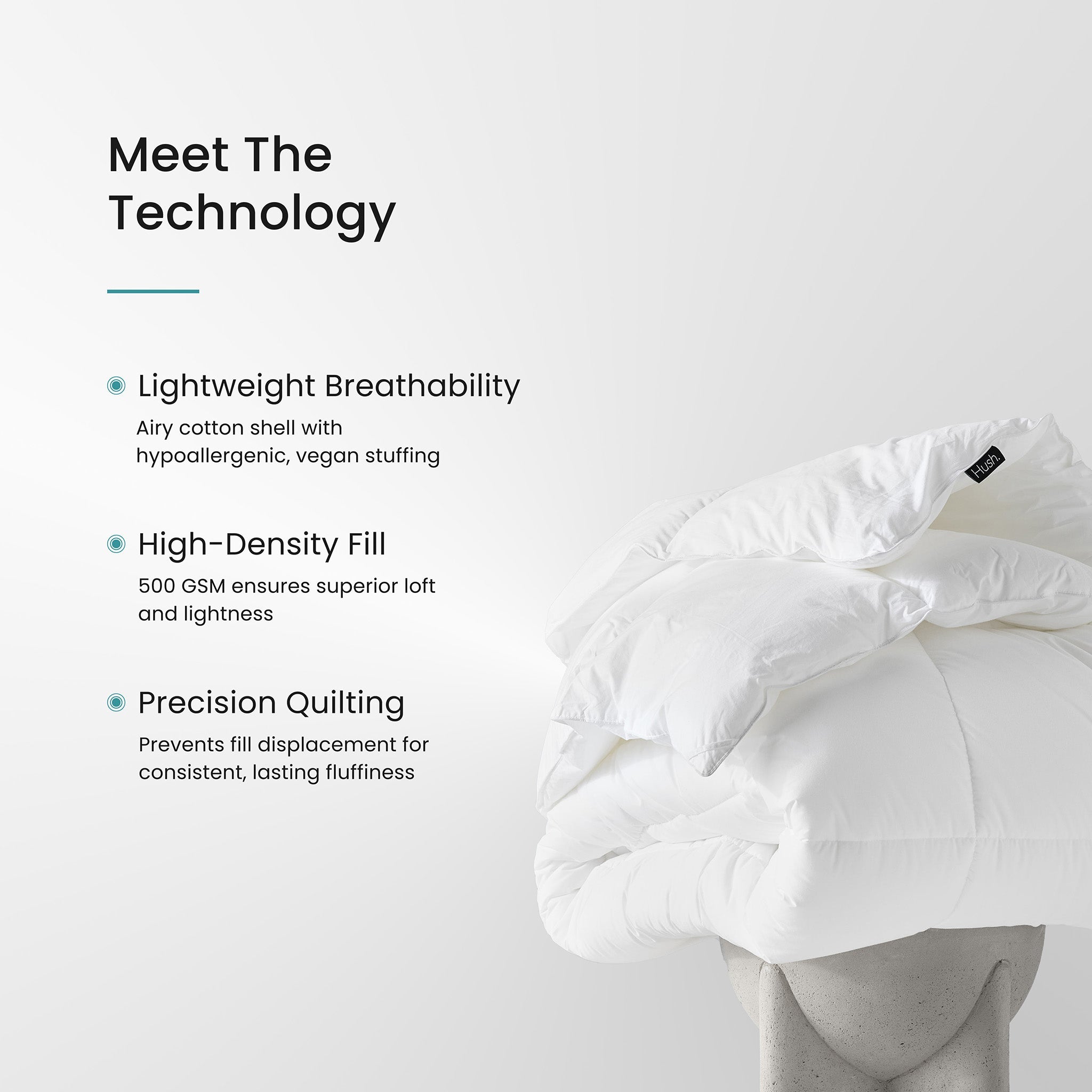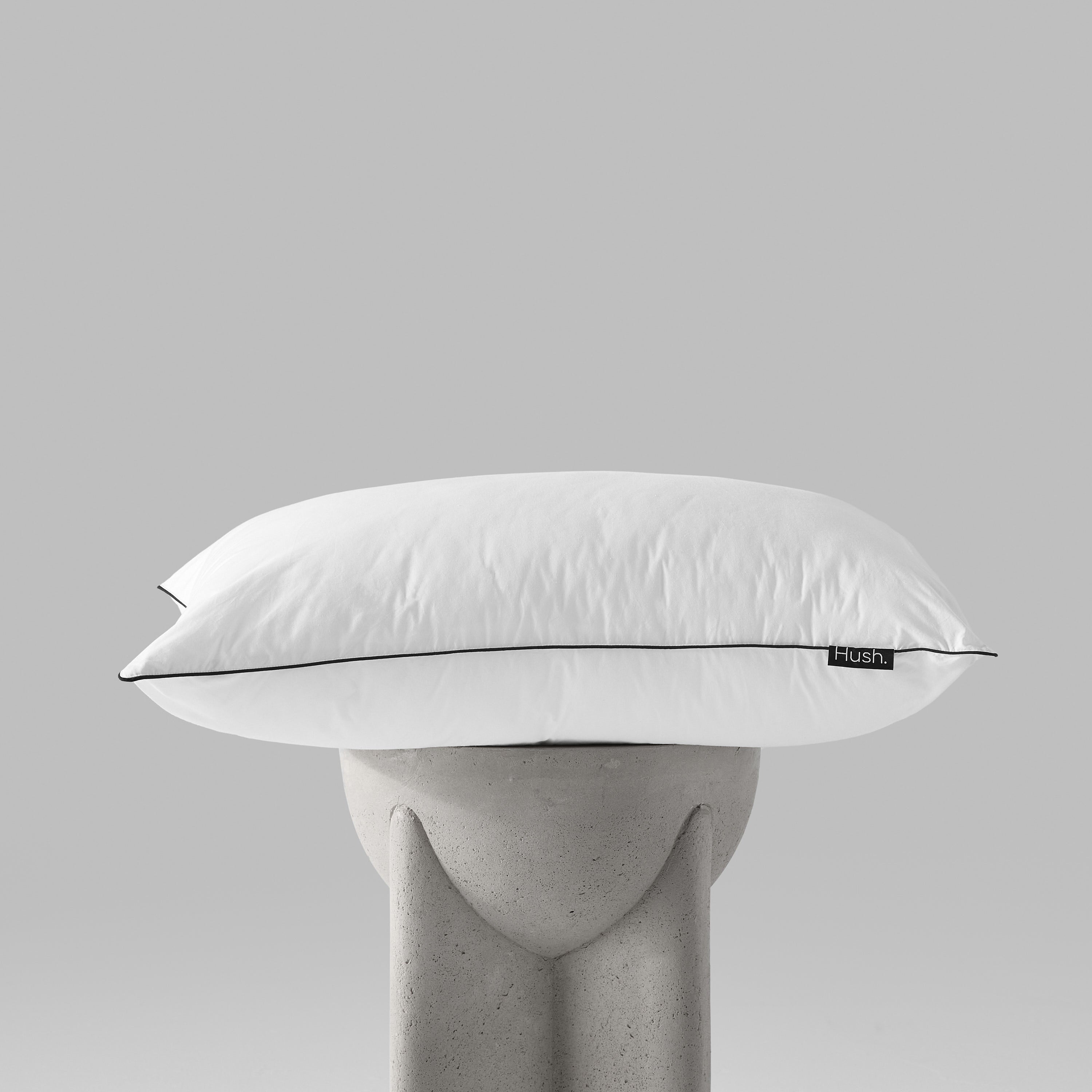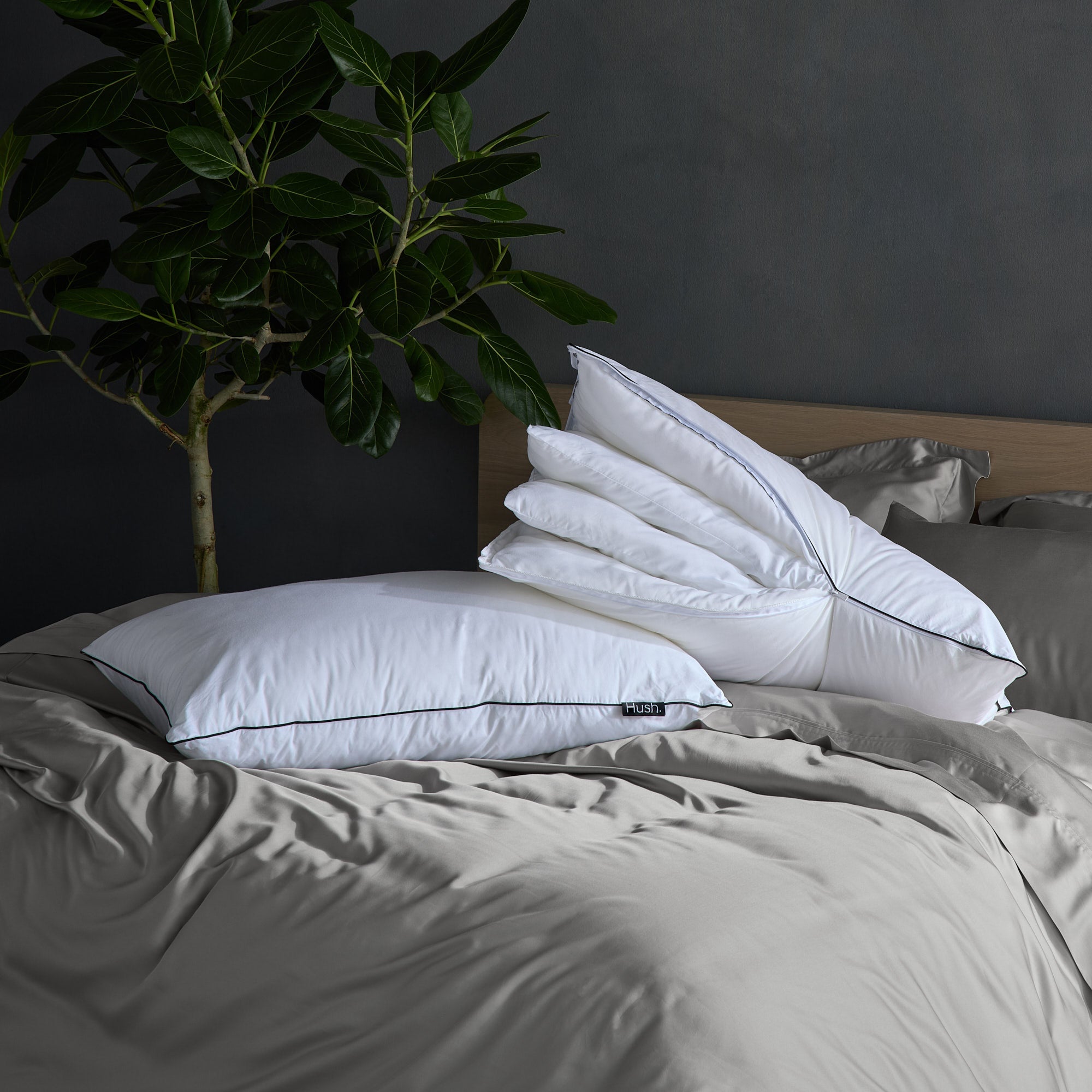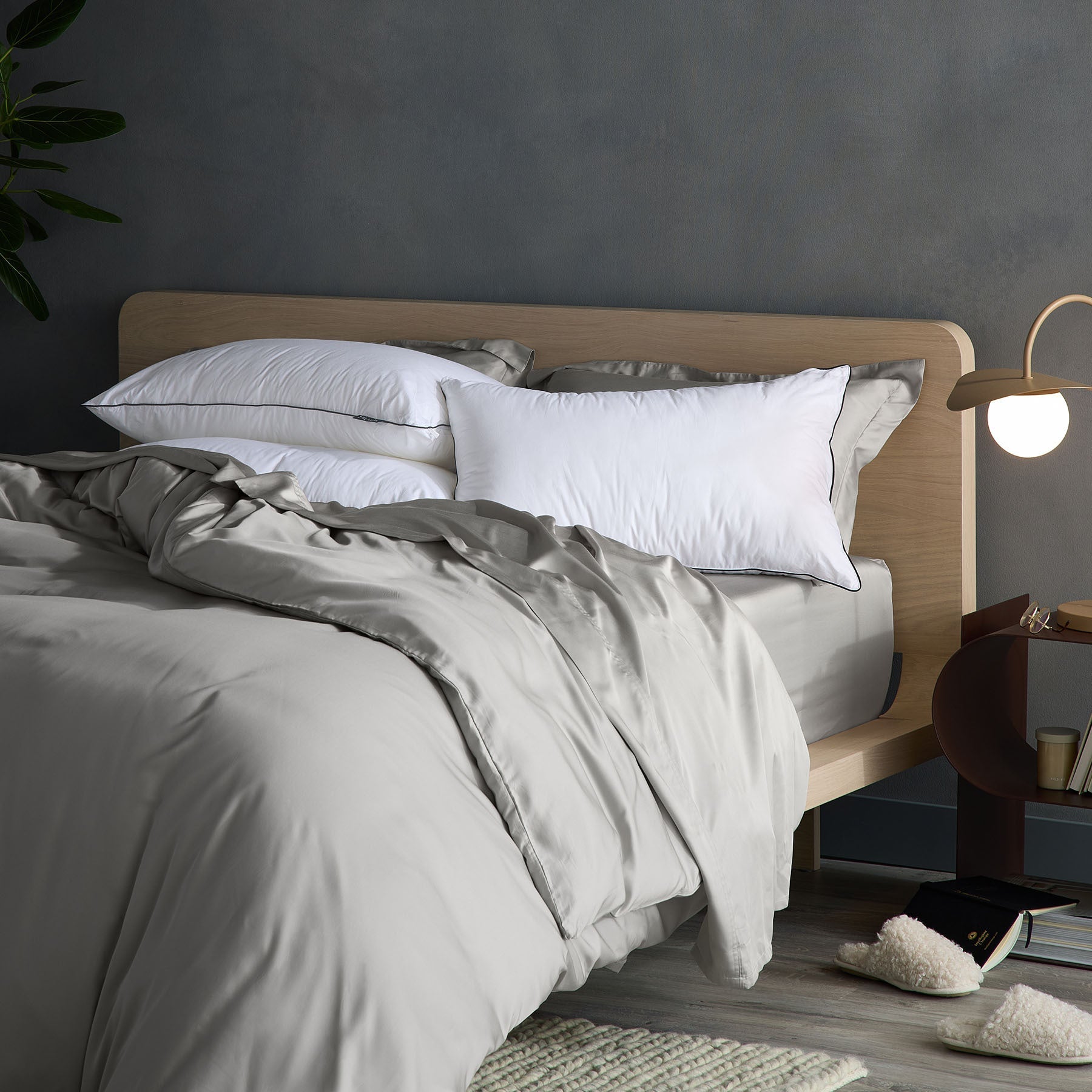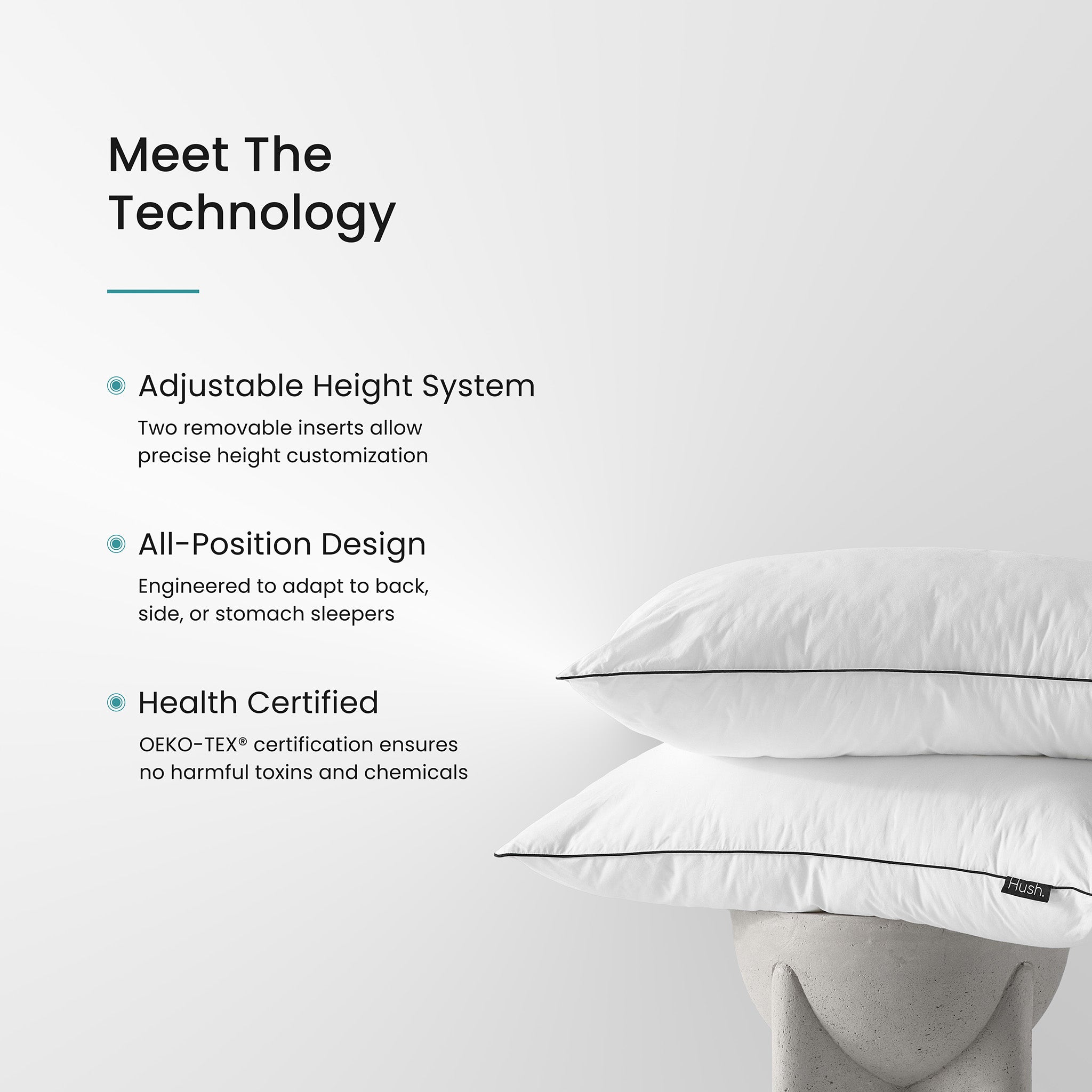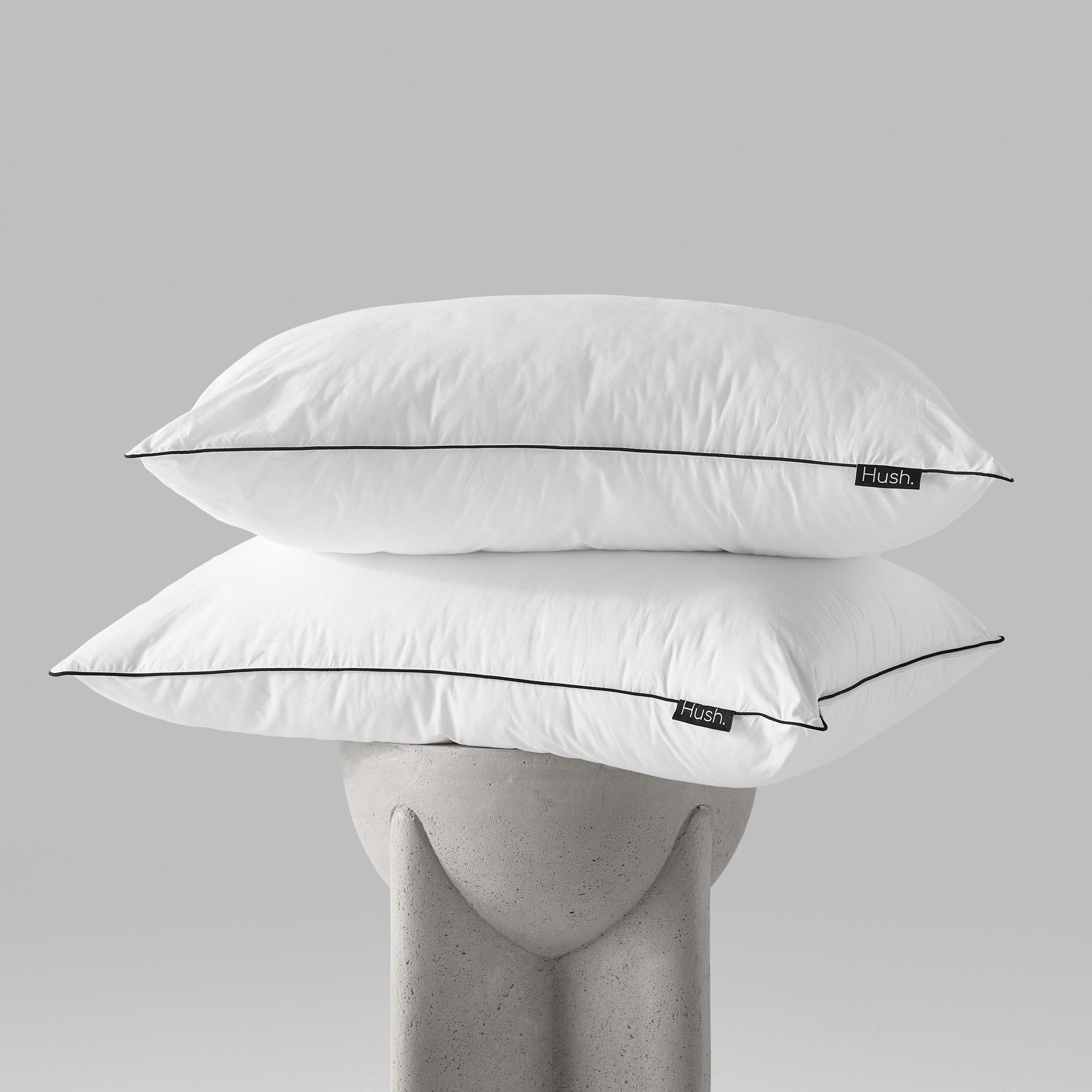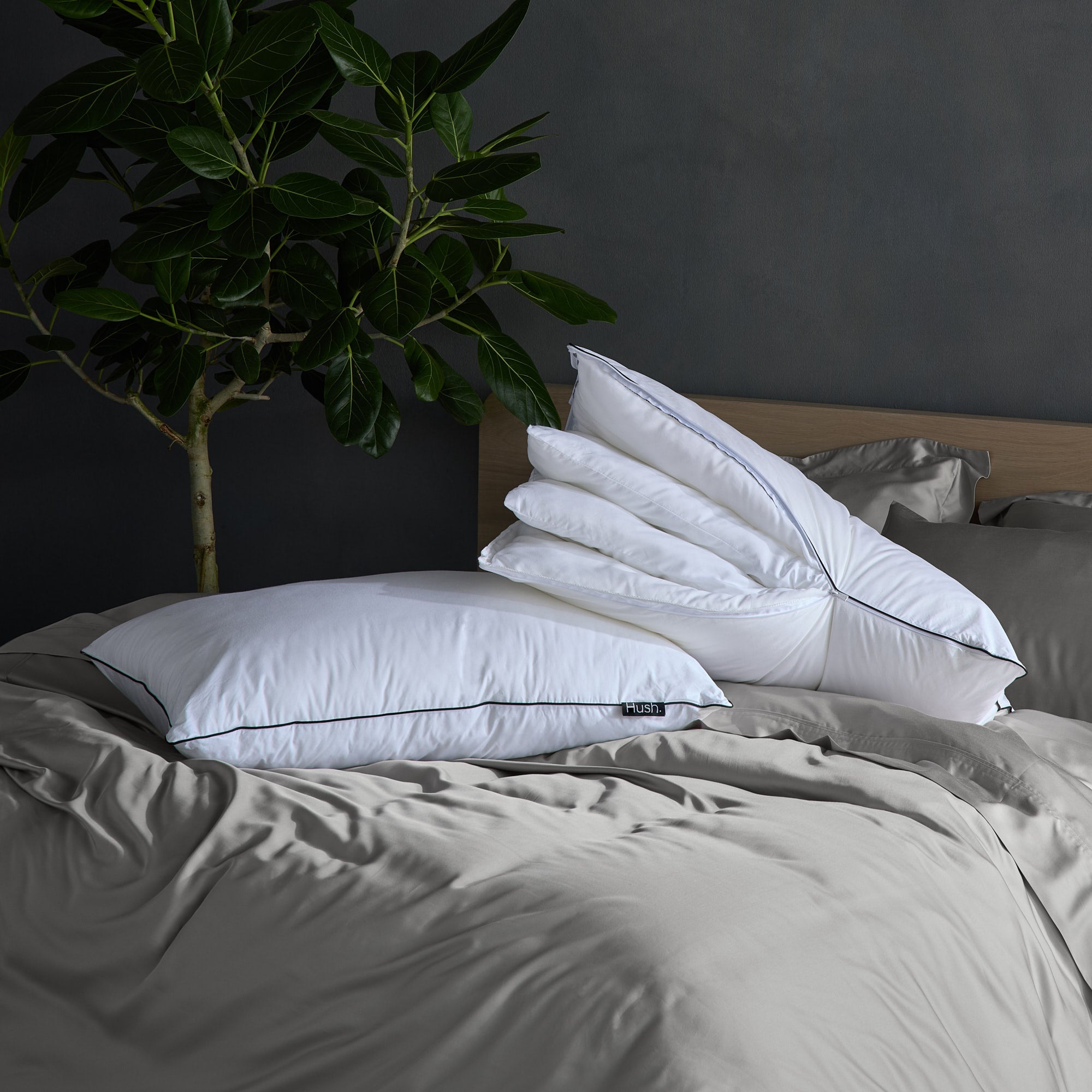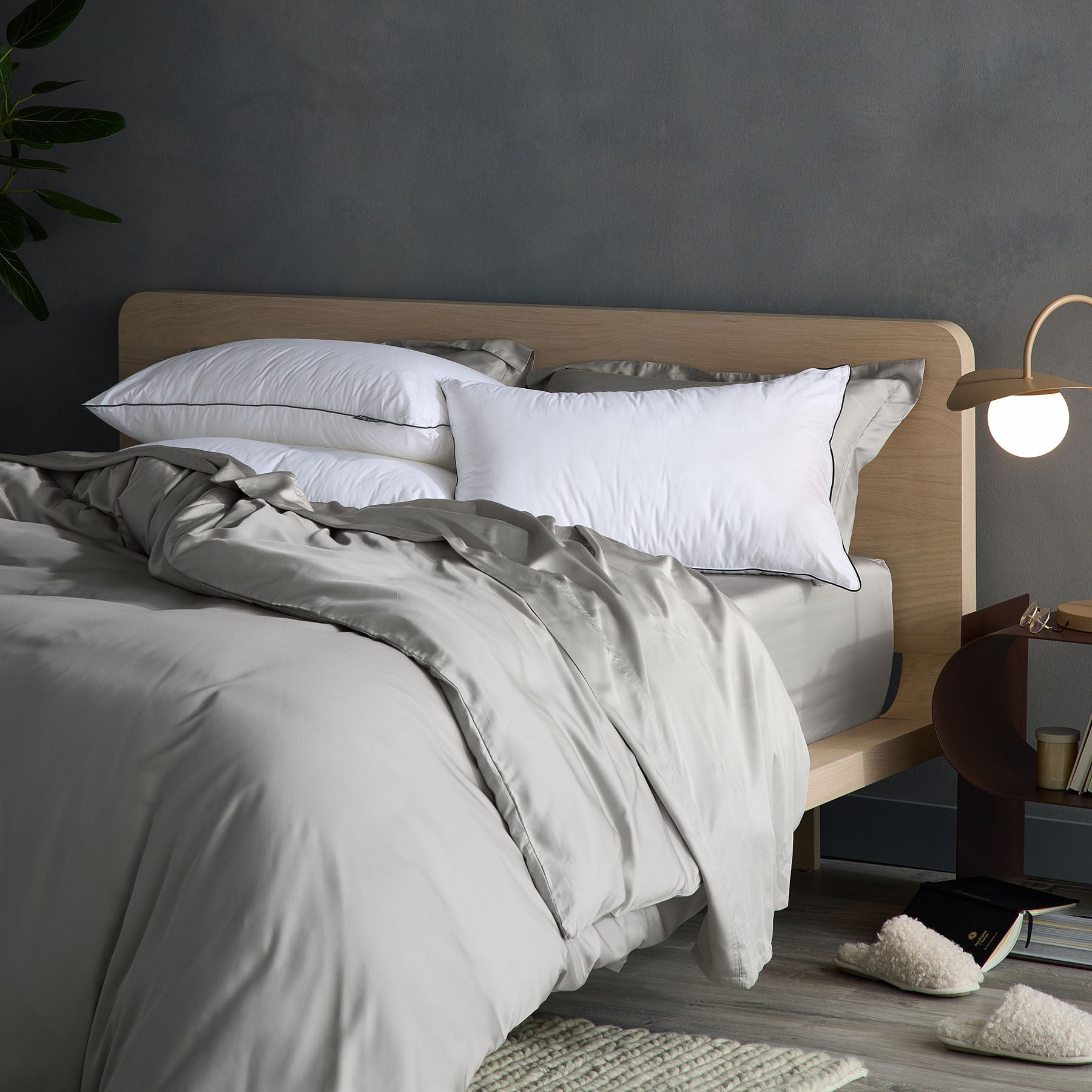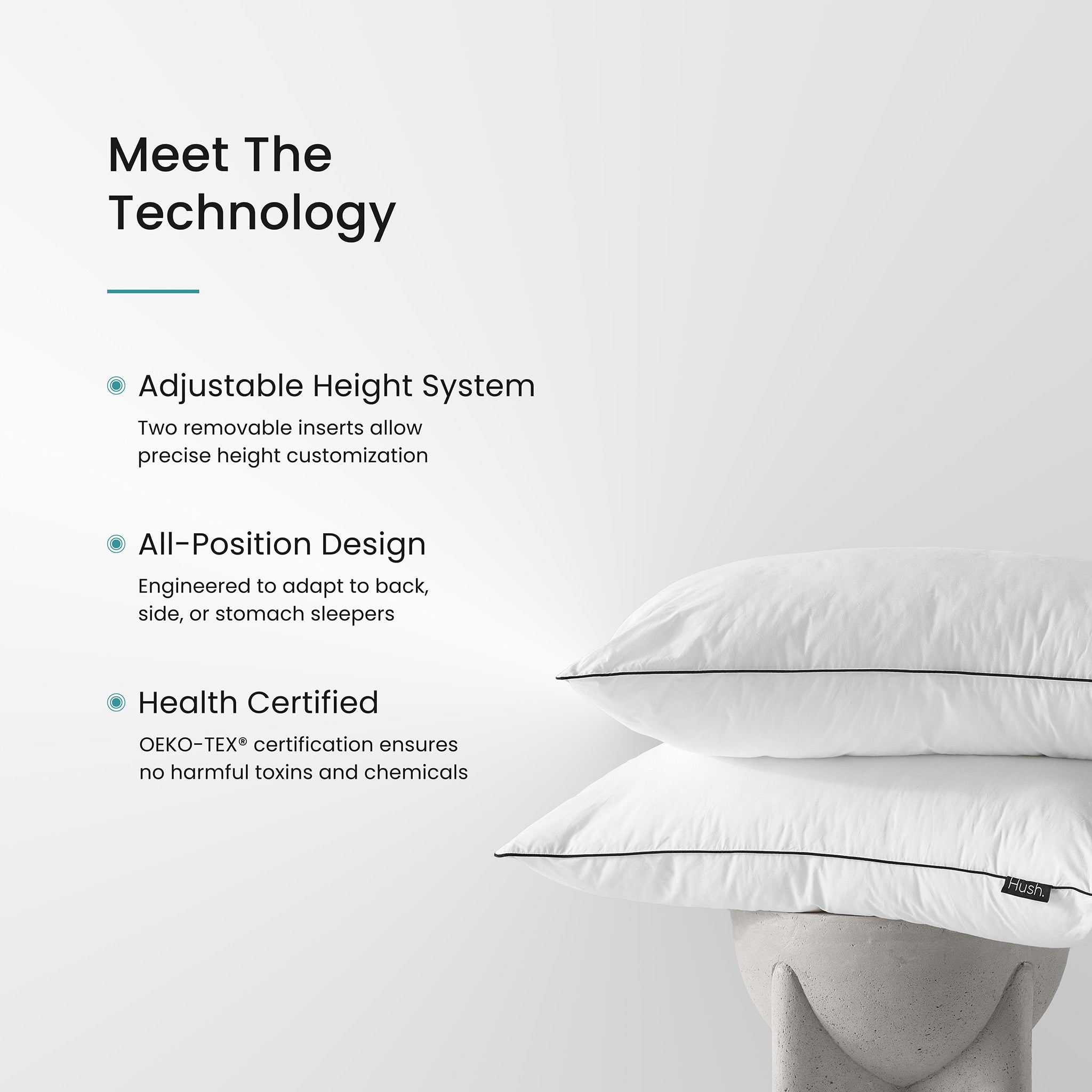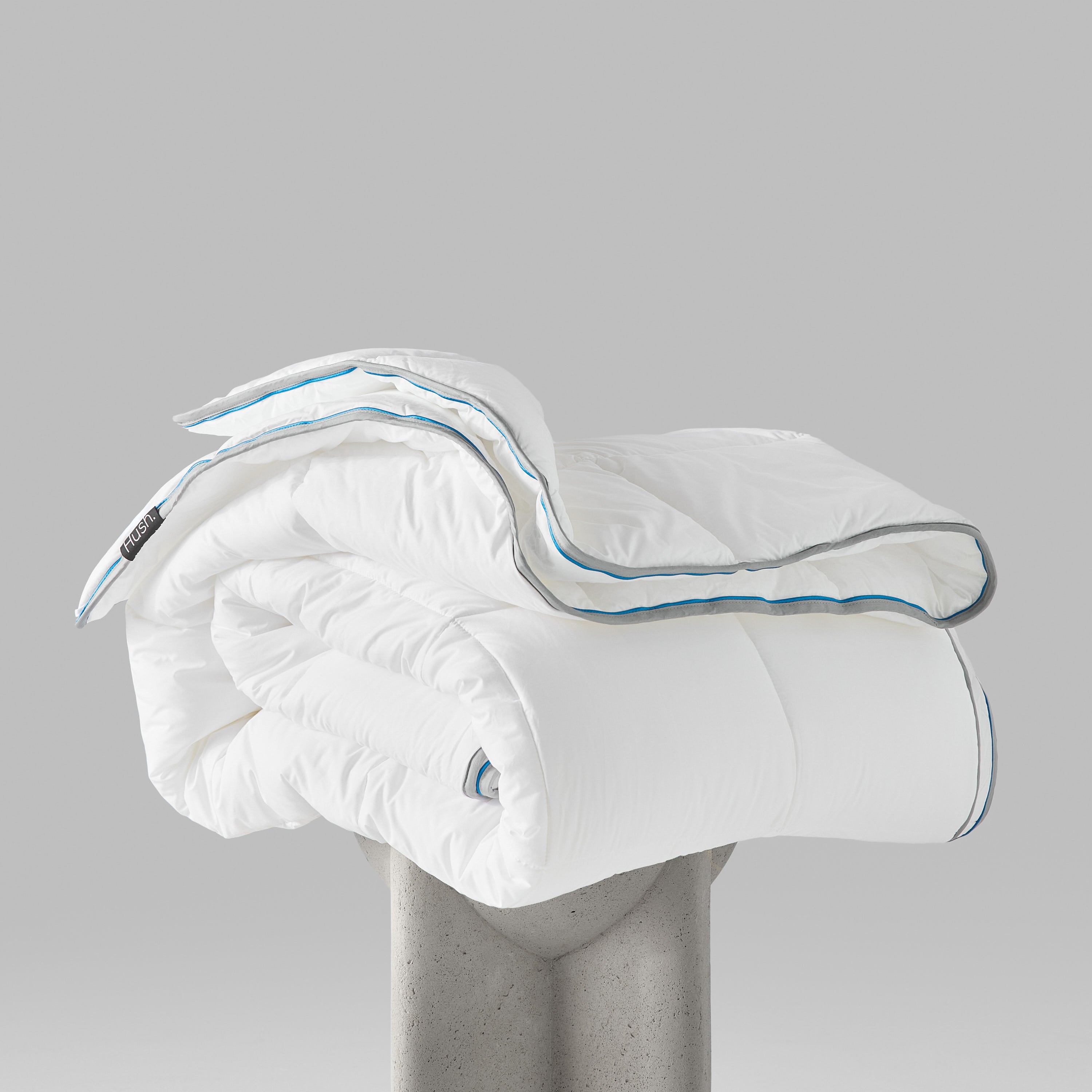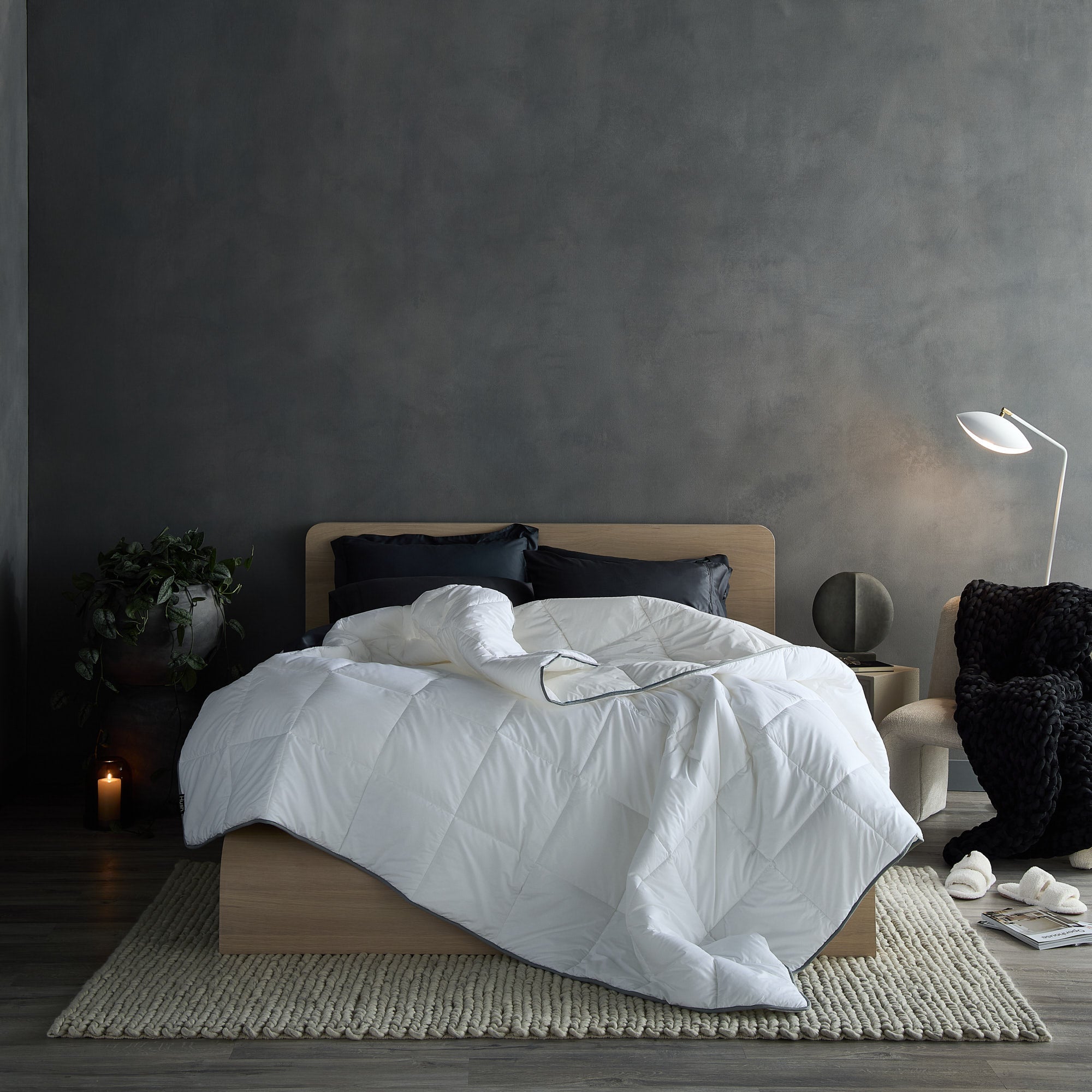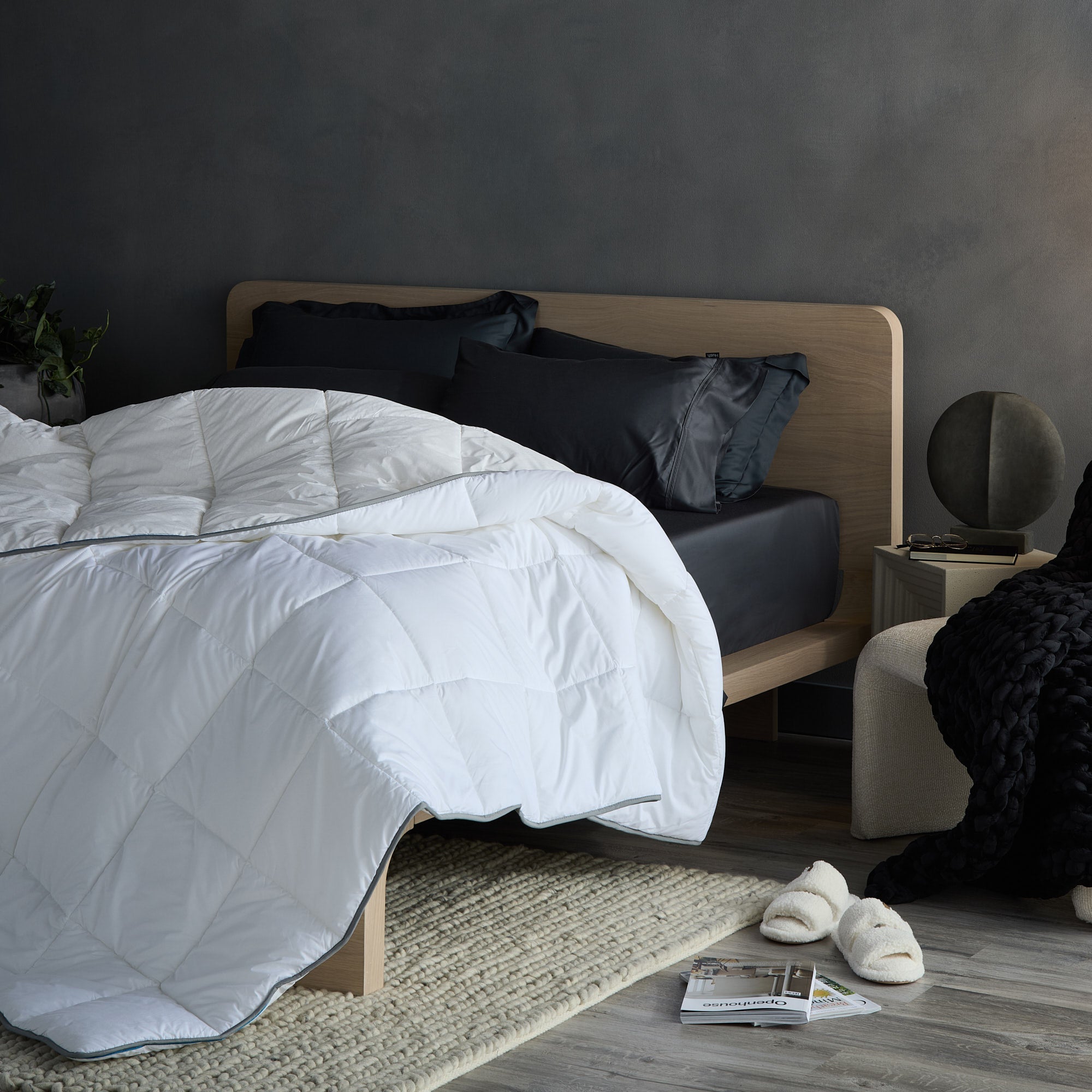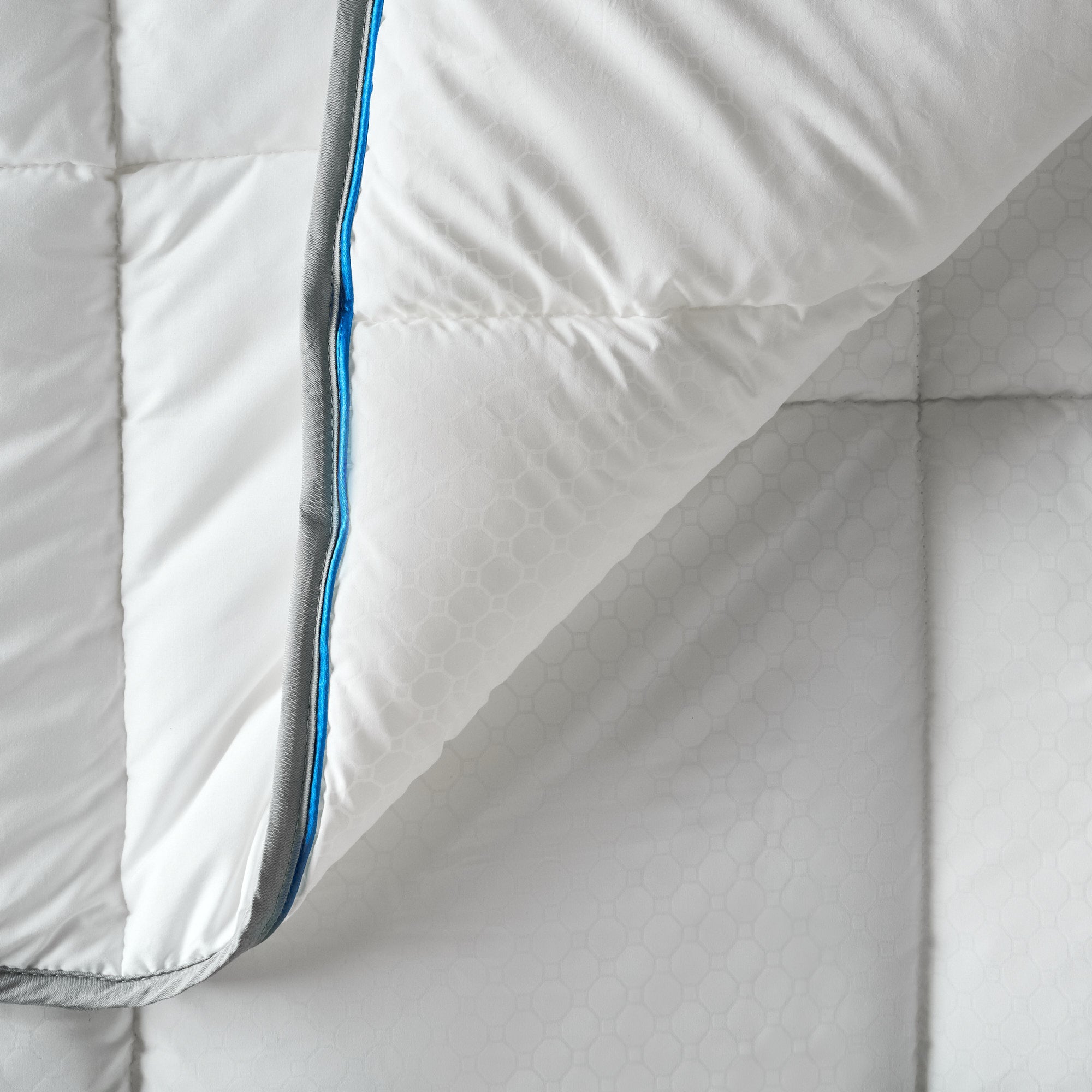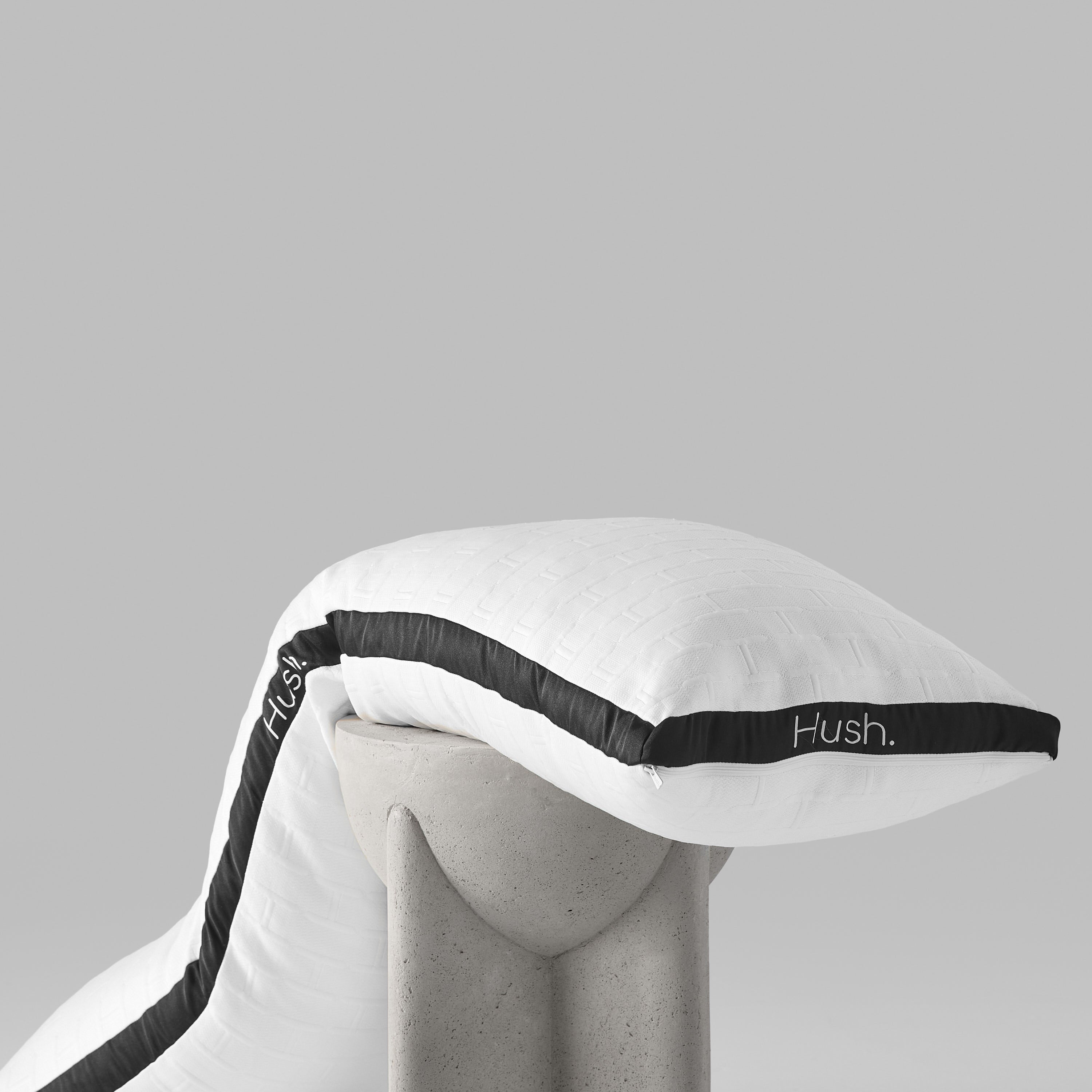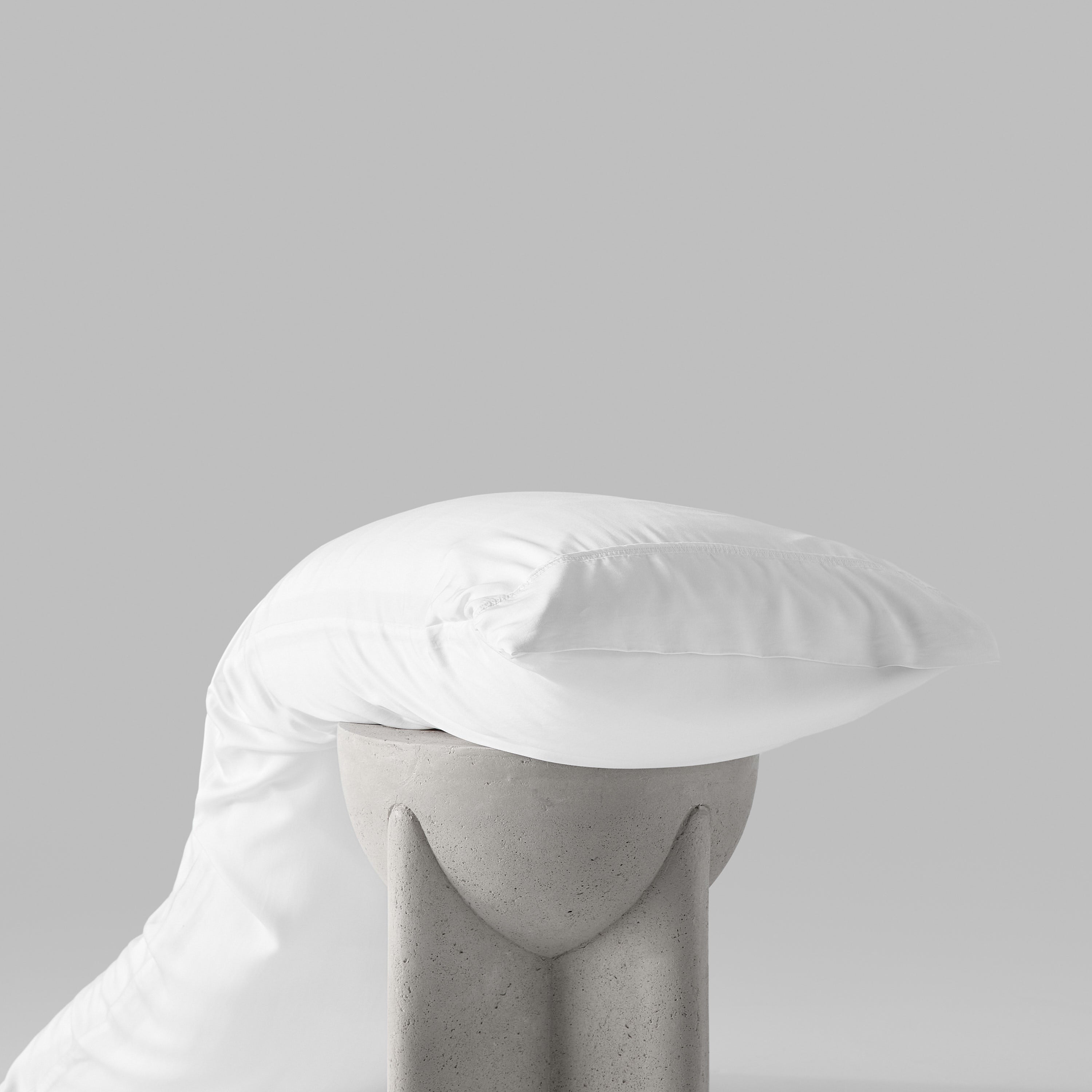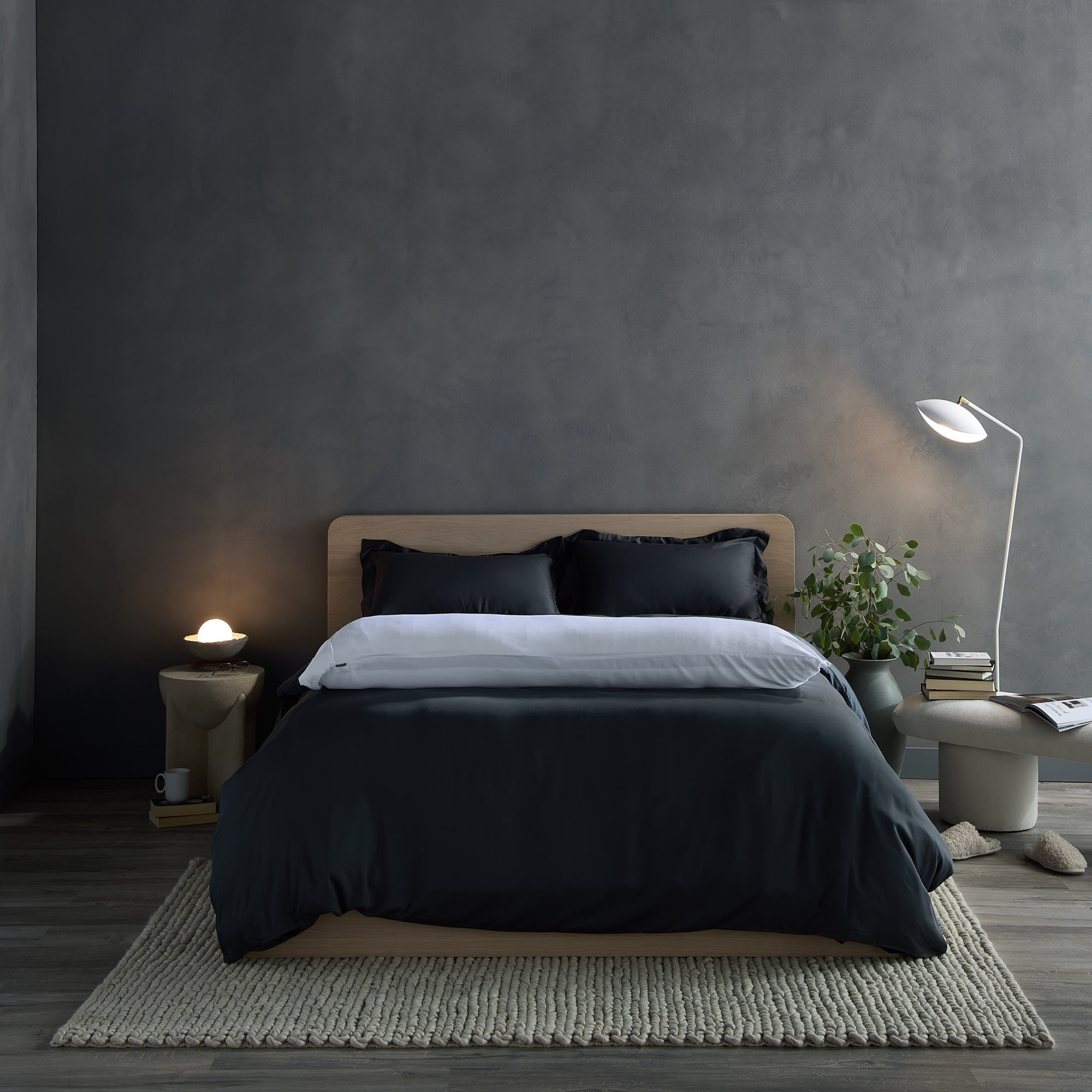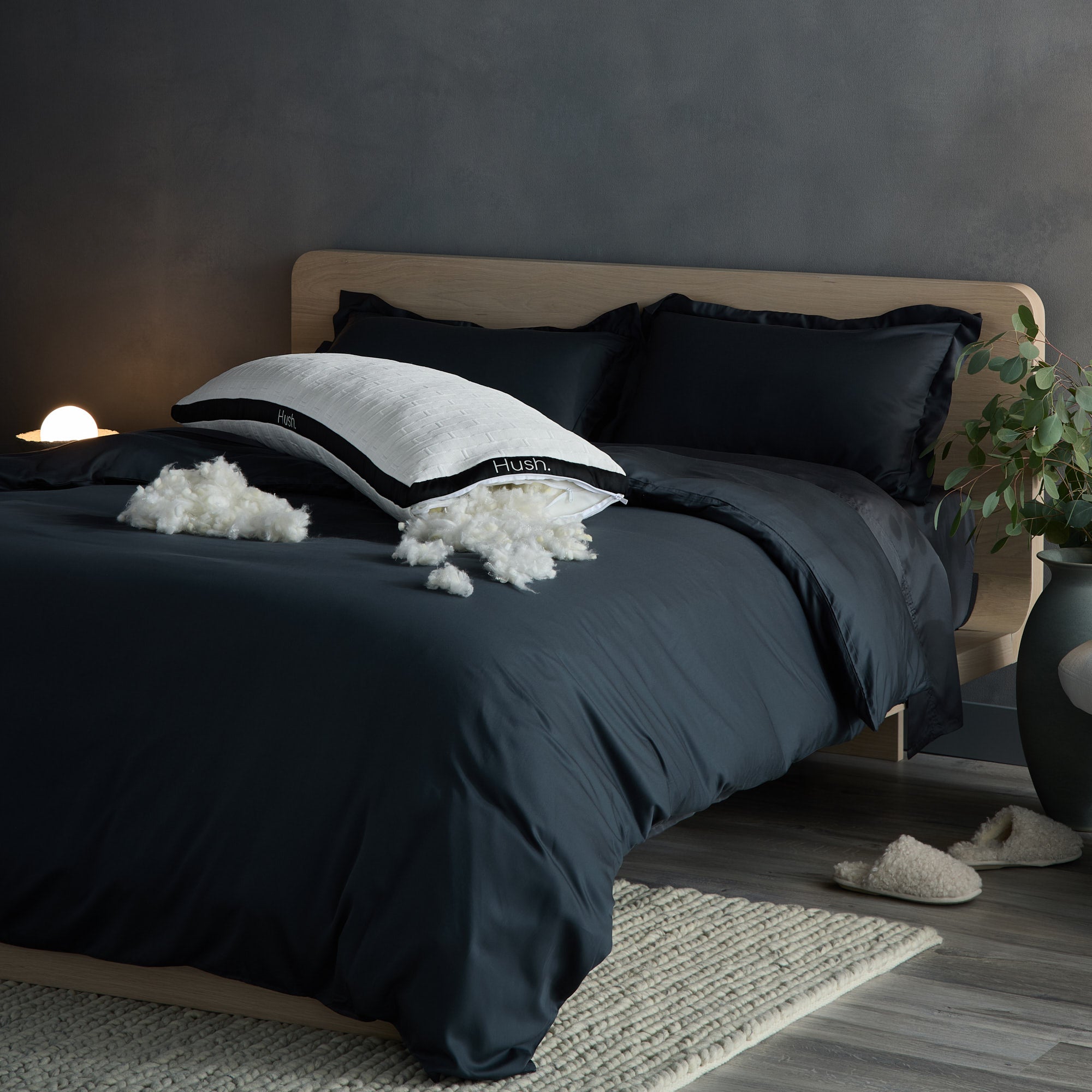Imagine you're getting ready for bed when a sudden feeling of intense fear overcomes you. You start to sweat and your heart starts pounding — you're having a panic attack.
Some estimates say as many as 11% of people experience panic attacks each year, and they can happen anytime — even at night.
If you suffer from night terrors, you're not alone. When panic attacks happen at night, they can make it difficult for you to fall asleep. Your body feels wired and restless from the panic attack. Overtime, nighttime panic attacks can leave you overtired and could even lead to sleep disorders like insomnia.
Here, we’ll cover what panic attacks are, what causes them, and how you can treat them, so you can get a restful night sleep.
What Are Panic Attacks?

Panic attacks occur when we feel sudden, intense levels of anxiety. The anxiety overwhelms our abilities to respond to our emotions. We know we are not actually in danger, but because it feels that way and because our response system is overwhelmed, we respond as though we are.
Anxiety and panic attack triggers vary from person to person. The intense levels of anxiety can also stem from a slow, gradual build-up of pressure or from one extreme moment. For example, a panic attack could be triggered by social anxiety about being in large groups before you go to a concert.
As this anxiety slowly builds, you worry more and more about how you’ll react several days before the actual concert. Then when you’re there, you have a panic attack. On the other hand, an extreme moment reaction could be when you’re on an elevator alone, but then a large group of people joins you, causing your claustrophobia to go into overdrive.
The key is to remember that while panic attacks feel dangerous, they are not. You feel like you’re in immediate physical danger, even though your brain knows you’re safe. That said, the feelings associated with panic attacks are very real. Some of the symptoms of a panic attack include:
- Feeling out of control
- Shortness of breath
- Extremely rapid heart rate
- Heart palpitations
- Sweating or chills
- Feeling lightheaded or dizzy
Panic attacks can happen at any time of day or night.
What Causes Panic Attacks at Night?

When we are prone to suffer from anxiety, it’s common for our anxiety levels to be higher in the evening. There is less to distract us from our thoughts, so we are better able to focus on whatever is worrying us.
This worry and anxiety can lead to poor sleep. Poor sleep can increase our levels of anxiety. We worry so we don’t sleep. Then, our lack of sleep makes us worry more. We can fall into sleep deprivation. It’s a horrible cycle and can sometimes result in sleep disorders like insomnia.
Even when we do manage to drift off for a few hours, our anxiety can still disturb our bodies. This leftover anxiety can surface while we sleep, and we can wake from sleep in a nocturnal panic attack.
The symptoms of panic attacks at night are the same as daytime panic attacks. In fact, some people who suffer from nocturnal panic attacks seek medical treatment because when they wake up, their chest pain makes them think they are having a heart attack.
One difference is that it is often difficult to get to the cause of the attack, especially if you’re sleeping when the attack starts.
That said, there are some common general causes of panic attacks at night. They include:
- Genetics or having family members who suffer from anxiety attacks
- Major life events or changes
- Personality
- Underlying medical conditions
Additionally, underlying issues can be generalized anxiety disorder, post-traumatic stress disorder, acute stress disorder, or obsessive-compulsive disorder, according to American Psychological Association. While this list of causes isn’t complete, it may help you understand the root of your nighttime panic attacks.
Another issue with nighttime panic attacks is the sleep disturbances that often occur after the attack. Even though the panic attack only lasts a few minutes, it takes many minutes or even hours to calm down after the attack and fall back to sleep.
Panic Attack or Panic Disorder?

Anyone can experience panic attacks, especially in seasons of our lives when you suffer from large amounts of stress. However, just because you have one panic attack doesn’t mean you have a panic disorder.
The physical symptoms of panic attacks and panic disorder are the same. However, according to the Merck Manual, panic disorder is when you have frequent panic attacks and start to change your routines and life in order to avoid the attacks. You also have anxiety about having more panic attacks. If you have a history of panic attacks, you may be more likely to develop a panic disorder.
Only a doctor can accurately diagnose a panic disorder. If you suspect you have a panic disorder, make sure to schedule an appointment with a mental health professional.
How to Treat Panic Attacks at Night

Making changes to your sleep hygiene and/or taking medication can help manage your panic attacks at night.
At-Home Approaches
There are several at-home approaches to help your panic attacks at night. Here are a few tips for practicing good sleep hygiene:
- Make sure the room is cool.
- Keep your body temperature from being too hot by wearing breathable pajamas.
- Use high-quality fabrics on your bed.
- Reduce or eliminate screen-time at least one hour before bed.
- Use mindfulness and meditation to calm your mind and connect with yourself.
Weighted Blankets
A weighted blanket is another great tool to use in your routine, either before bed or as you’re drifting off.
Because weighted blankets use deep pressure stimulation, they help slow down your heart rate and breathing. The pressure on your body signals your lungs to take full, deep breaths, which in turn, slows your heart. These two physical effects cause your brain to release serotonin and your body to move instinctively toward relaxation. By using a weighted blanket at night, you can prevent your anxiety from taking control.
For some people, cognitive behavioral therapy is also a solution to panic attacks at night. By talking with a mental health professional about the root causes of your anxiety, you can manage symptoms. Psychotherapy also helps you see your concerns with new perspectives and insights.
Medical Treatments
If you suffer from a panic disorder or frequent panic attacks, your doctor may want you to try medicines to help you reduce your nighttime anxiety. According to the American Psychiatric Association, there are some common medications used to treat panic attacks:
- Antidepressants (selective serotonin reuptake inhibitors)
- Anti-anxiety drugs (benzodiazepines)
- A combination of both
While both classes of drugs seem to work equally well, anti-anxiety drugs can be more habit-forming, so that’s definitely something you’ll want to consider. As with any drugs, take into account any other underlying conditions you might have and potential side effects of medication. Talk with a mental health professional about whether medication might be right for you.
How to Handle Panic Attacks at Night

Even with your best efforts, panic attacks at night can still happen. That’s ok. It doesn’t mean something has gone wrong — it just means you’re human.
However, when a panic attack does happen, you can minimize the effects by doing a few simple things.
First, work to focus on taking deep breaths. Deep breathing signals your body to calm down.
Second, once the panic attack ends, have activities ready that help you relax again. Journaling can be cathartic, or you might play relaxing music while you meditate. Here too, a weighted blanket or weighted throw blanket can help remind your body you are safe and able to calm down.
Finally, make sure you’re scheduling enough time to sleep. It can take several minutes to “come down” from a panic attack, and worrying about the sleep you’re missing could actually increase your anxiety.
By allowing for enough time to sleep, you will be able to spend some time on recovering from a panic attack without it impacting your total sleep. So, if you feel rested after seven hours of sleep, make sure you plan to be in bed for at least eight. That gives you extra time to calm down your mind without cutting into your sleep hours. You will still be able to get enough rest to function well — heck, to thrive — the next day.
You could also use a weighted blanket while you’re having a panic attack. The pressure and “soothing hug” feel it provides could help soothe these intense feelings.
Experience Calm, Relaxed Nights

When you have panic attacks at night, it can feel like you’re suffering alone. A weighted blanket gives you the same safe, warm feeling of a hug. It can help you recover from a panic attack when you have one, and it can help prevent one from happening by helping you sleep calm and relaxed.
If you’re ready to try a weighted blanket, rest even easier with the Hush Blanket’s 100-night guarantee. Great sleep is close.

